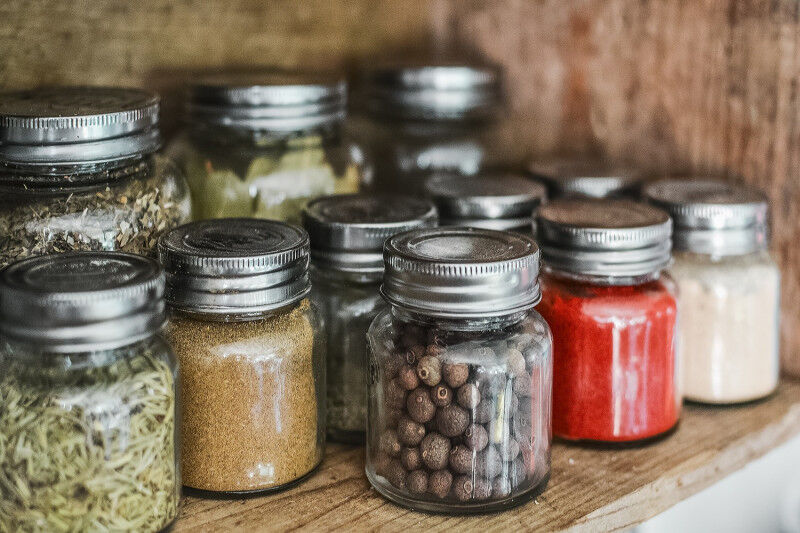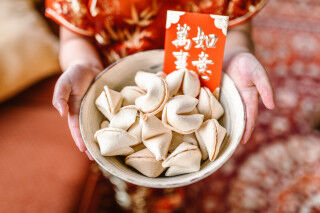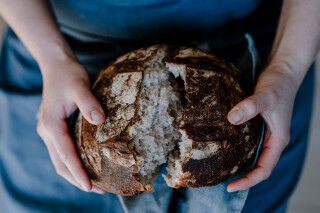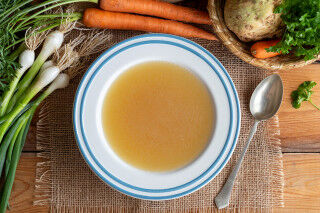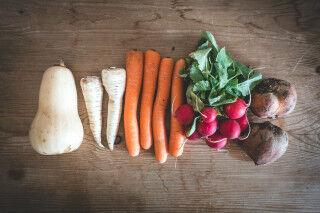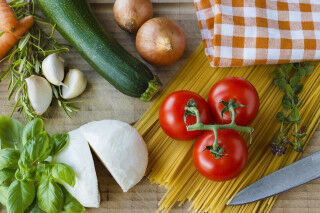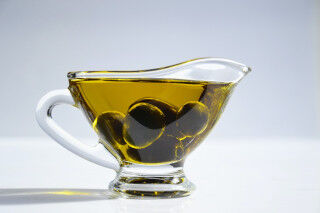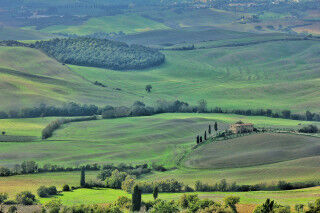WHERE ARE FRESH SEASONINGS AND HERBS GROWN IN ITALY?
Excellent fresh herbs are grown indiscriminately throughout the country, although some regions do indeed grow DOP products. In small green-gardens in private homes, in pots on apartment terraces, in large-scale productions - Italy is home to both industrial and cottage industries of local herbs and seasonings. I have rarely seen an apartment complex without a flourishing rosemary bush begging to be used.
Aromatic herbs can be found all over the countryside as well, with flourishing rosmarino hanging over stone walls, and large sage bushes adorning city center squares in just about every single small country town, but don’t pick that sage - it could be just decorative!. Supermarkets conveniently package prebundled essential herbs such as rosemary, bay leaf, and sage so if you don’t grow your own you can still have some at hand.
There are industrial producers that offer a wide selection of fresh herbs such as chives, marjoram, dill, coriander and more. The trick is using them before they start to turn, as fresh herbs have a surprisingly short shelf life, unless you freeze them, in which case I’d recommend freezing in glass jars so you can see what you have. Industrial producers also grow aromatics for use in the cosmetic and non-food industries. Industrial producers are found nation-wide, although the numbers of companies dedicated exclusively to the production of aromatic herbs is pretty small - it’s a niche industry to be sure, although those providing herbs for essential oil extraction tend to be fairly productive.
In a pinch, if fresh aromatics are not available, dried versions are just fine although I don’t recommend oil extracts. I had an overflowing oregano plant and opted to harvest the oregano, dry it out by shaping the branches into one large bouquet then hanging it up to dry for several days before whizzing it in the blender and boom - organic oregano for months to come. Add dried mint, and you have a perfect fish seasoning.
WHAT PEOPLE LOVE ABOUT AROMATIC HERBS
Personally, I love the bouquets and flavors that come through when I adjust my seasonings in a dish, and I love the play of aromas that emerge when I add in my classic herbs. The smells that waft from the kitchen when you’re sautéeing garlic and parsley for a quick vegetable drizzle, or even garlic and curry (not a typical Italian seasoning, but one that’s cropping up more and more as ethnic foods are beginning to emerge) aromas are unmistakable and delicious.
The main reason we all love herbs is because they allow us to really cut back on possibly harmful add-ins, like salt. Of course, it’s always necessary in dishes, and there’s not one single person out there making pasta (in Italy) who doesn’t add salt to boil water for pasta, but the less we use, the better off we’ll be in the long run. The Mediterranean Diet’s herbs and seasonings allow you to moderate your intakes of specific ingredients so much more.
"Herbs are the friend of the physician and the pride of cooks." Charlemagne
WHY SHOULD I HAVE FRESH HERBS AND SEASONINGS ON HAND?
While I love working with fresh herbs, it’s not a must considering the lovely range of dried aromatics also available. And it’s not always necessary to purchase the little jars from the supermarkets - there are many adorabili torrefazioni shops, small boutiques in Italy where fresh coffee beans are purchased and ground on-site, which carry a wide selection of apothecary-style jars with dried herbs. Love those solutions as well as my own fresh garden-grown herbs. You can experiment with a range of Italian dried herbs from your own sources and come up with a blend you love. You can take the approach of a brava massaia, the frugal Italian home cook figure, by giving someone a beautiful jar of home-grown herbs as a housewarming gift.
THE HERBS WIND-DOWN
All types and forms of herbs are welcome additions to your home-cooked dishes. Healthy and abundant, seasonings bring sensuous aromas and depth to your dishes without adding any negative side-effects. While I know it’s not your case, since you’re just as much a foodie as I am, herbs and aromatics can be a secret weapon in the dishes of those who are not innamorati with daily cooking. Seasonings can help make up flavor profiles with relative ease, and as they’re pretty forgiving, you can even add in selections once your dish is close to being done. If you forget to add your sage in the beginning of your recipe, you might find that it’s better added towards the end to deter any bitterness from these silver-grey leaves. Herbs and seasonings are great to work with, and a perfect way to add a little kick to your dishes while avoiding being heavy-handed with the salt shaker.
Do you already have a prolific herbal garden going? What do you use your seasonings for, and do you have a favorite way of including them in your dishes? Don't forget to check out Part 1 of the Spices and Herbs article here for your Spice background.
Where do we feature spices in the Mamablip hemisphere? Check out the Mamablip Recipe Index for lots of great ideas - you'll see fresh and dried seasonings and spices crop up just about everywhere, even sometimes in our Sweets and Desserts!
Don't forget to register for Mamablip's weekly newsletter for updates on all the exciting newest Mamablip Blog articles, recipes and other wine news from Italy.
